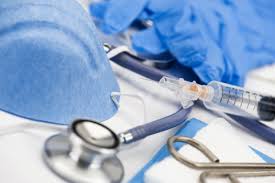South African Nursing Courses Offered, Qualifications and How to Become a Nurse in South Africa.
WHAT DOES A CAREER IN NURSING ENTAIL?
Nursing, as a profession, is based on scientific knowledge which is acquired during the four years of study at a nursing college.
This knowledge will equip nurses to help prevent disease, to educate people on health issues, enhance health, and support ill patients both physically and psychologically. As a dedicated health care professional, you will be required to treat every patient as an individual and consider all aspects of the patient e.g. their physical, psychological, and social well-being.
A nurse is an independent practitioner guided by nursing acts and ethical codes. Nursing is an extremely rewarding career as you have the opportunity to make a positive impact on people’s lives on a daily basis.
After completion of the four-year basic nursing programme, an opportunity exists for qualified nurses to further their education in various specialties e.g. nursing education, nursing management, critical care nursing, trauma and emergency nursing, operating theater nursing, primary health care, orthopedic nursing, child nursing, etc.
There are three main types of nurses in South Africa:
- Registered Nurses or Nursing Sisters
They are responsible for the supervision of enrolled and enrolled auxiliary nurses as well as typical nursing responsibilities.
- Enrolled Nurses
They perform limited nursing care.
- Enrolled Nursing Auxiliaries
They perform basic procedures and care for patients on a general level.
According to the South African Nursing Council Statistics, the nursing industry in South Africa is growing. Fast. In the last 10 years, there has been a 35% increase in registered nurses (across all three categories) — that is over 74 000 new nurses registered in South Africa since 2008. Registered nurses have seen an increase of 31%, while enrolled nurses and enrolled nursing auxiliaries have seen increases of 71% and 15% respectively.
As a nurse, you’re likely to always have a job. According to the South African Health Review 2017, nurses make up the largest single number of healthcare professionals in South Africa.
And if you don’t love the idea of working in a hospital, don’t worry, your options don’t end there. As a nurse, you can work in schools, universities, out-patient clinics and pharmacies, government institutions, nursing homes, research labs and many other settings.

Nursing can also be a financially-attractive job, earning between R12 500 and R25 000 a month.
Starting to see the appeal? Carry on reading to find out how to get there.
What Qualifications Do I Need to Become a Nurse?
To qualify as a nurse, you can do one of the following:
- a four-year bachelor degree in nursing (BCur– Bachelor of Nursing Science, Education & Administration)
- a three-year diploma
- a one-year higher certificate in auxiliary nursing
- one-year postgraduate advanced diploma in nursing and midwifery on top of your degree or diploma.
After you get your qualification, you have to register with the South African Nursing Council (SANC).
You can choose to complete your qualification at a public tertiary institution or at a private nursing college. These private colleges, such as Mediclinic, Netcare Education or Life College, offer the same diplomas or degrees as the universities and universities of technology.
Bachelor Degree in Nursing Science (BCur)
The bachelor’s degree in nursing is generally a four-year-long course that is offered by most public universities in South Africa: UCT, Wits, Stellies (only postgrad), UP, UWC, NWU, UKZN, UNISA, etc. The degree consists of both a compulsory practical clinical training component and a theoretical component. Once you have completed a BCur (or equivalent), you are able to register as a professional nurse and midwife with the SANC.
Entry Requirements
It is recommended that you take Mathematics, Physical Sciences and Life Sciences, but this is not compulsory at all institutions. You will need a National Senior Certificate (NSC) or equivalent qualification at exit level 4, with:
- English (50-59%)
- First additional or home language (50-59%)
- Life Sciences (50-59%)
- Maths Literacy (50-59%)
- Life Orientation (50-59%)
What does the course look like?
The BCur usually prepares students to work in four specific fields:
- general nursing (working in hospitals and medical practices)
- community nursing
- psychiatric nursing
- midwifery (caring for mothers and babies)
Your course will have a practical component. You will learn how to do the kind of practical work you will need to be able to do when you become a nurse. In the theoretical component, you will learn the theory of what it is to be a nurse and you will study medical, biological, and natural sciences, psychological and social sciences, and pharmacology so that you have the knowledge you need to be competent and successful healthcare professional.
Diploma in Nursing
These courses are often offered by universities of technology like DUT, TUT, VUT, and CPUT. This course is only three years long and also consists of practical and theoretical work. After you have completed this qualification you are able to work as a registered staff nurse or enrolled nurse.
Entry Requirements
You will need a National Senior Certificate (NSC) or equivalent qualification at exit level 3 or 4, depending on the institution, to qualify to study this course. However, it is not as important that you have taken mathematics and/or physical sciences as it is for the BCur. You will also need:
- English (50-59%)
- First additional or home language (50-59%)
- Four other subjects (50-59%)
- Life Orientation (50-59%)
What does the course look like?
During this course, you will cover similar work to what you would cover in the BCur degree. You will go less in-depth with the work as the course is shorter. You will learn how to provide nursing care, apply your knowledge in the nursing practice, diagnose and treat minor illnesses and provide reproductive health care.
Browse through all the institutions in South Africa and find out everything you need to know from courses on offer, application information and residence availability.
Higher Certificate in Auxillary Nursing
This is a one-year qualification that is aimed to equip you with the skills that you will need to provide basic nursing care to individuals while working under the supervision of a nurse who holds a national diploma or degree. After completing your higher certificate you will be able to register as an enrolled nursing auxiliary.
Entry Requirements
You will need a National Senior Certificate (NSC) or equivalent qualification at exit level 3 or 4, depending on the institution, to qualify to study this course, however, it is not as important that you have taken mathematics, physical sciences or life sciences as it is for the BCur. You will also need:
- English (50-59%)
- First additional or home language (50-59%)
- Four other subjects (50-59%)
- Life Orientation (50-59%)
What does the course look like?
This course will teach you how to apply your knowledge of the theory, the practice of basic nursing and how to assess, plan, implement and evaluate basic nursing care for individuals and groups.
This course is designed to strengthen and deepen your knowledge in nursing and midwifery. During this course, you will specialize as a nurse or midwife (or accoucheur). This course is also only one year long and can only be completed after you have received a diploma or degree in nursing. Unlike the other courses, this course is mostly theoretical. This qualification will also be helpful if you wish to pursue a career in nursing management. This is the postgraduate course for an individual who has a diploma in nursing, will have to complete in order to work as a nursing sister in South African Hospitals.
Postgraduate Advanced Diploma in Nursing
Entry Requirements
In order to enroll in a course like this you have to have completed:
- Bachelor in Nursing Sciences (or equivalent) or a degree and comprehensive diploma
- Diplomas in nursing and midwifery
- Advanced diploma in midwifery, staff nurse and advanced diploma
You also have to have some experience to apply to this course – excluding your community service year. You have to have two years of experience as a Professional Nurse and/or Midwife (including at least one year in the field of specialty within the last five years).
What does the course look like?
This course is designed to teach you how to work like a nurse who is clinically focused, well-informed, competent and innovative. At the end of this course, you will have specialized as a nurse or midwife/accoucheur and you will be able to give well-informed scientific care to your patients.
After your Qualification
After you qualify and register with the SANC, you can choose to work in any number of places, but if you want to study further, you can study a master’s degree or advanced diploma in nursing and you can register as an advanced practice nurse. There are two main categories of advanced practice nurses:
- Clinical nurse specialists: People who have in-depth and specialized qualifications who work closely and collaboratively with other medical practitioners.
- Advanced nurse practitioner: A person who works in primary care — health assessment and the diagnosis and treatment of ailments. In South Africa, advanced nurse practitioners are often referred to as primary health care nurses and theand y can work as midwives, psychiatric and paediatric nurses outside of the hospital environment.
Note
Don’t hesitate to follow & Like Us on Facebook, in order to get South African Nursing latest information.
However, if you have any queries regarding South African Nursing Courses kindly leave a comment below and we shall provide you with the information you need As soon as possible.
